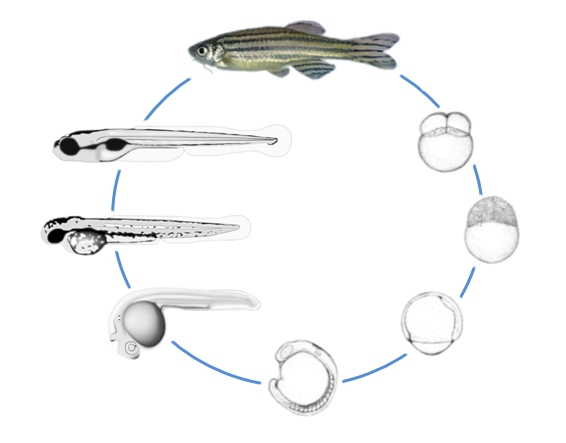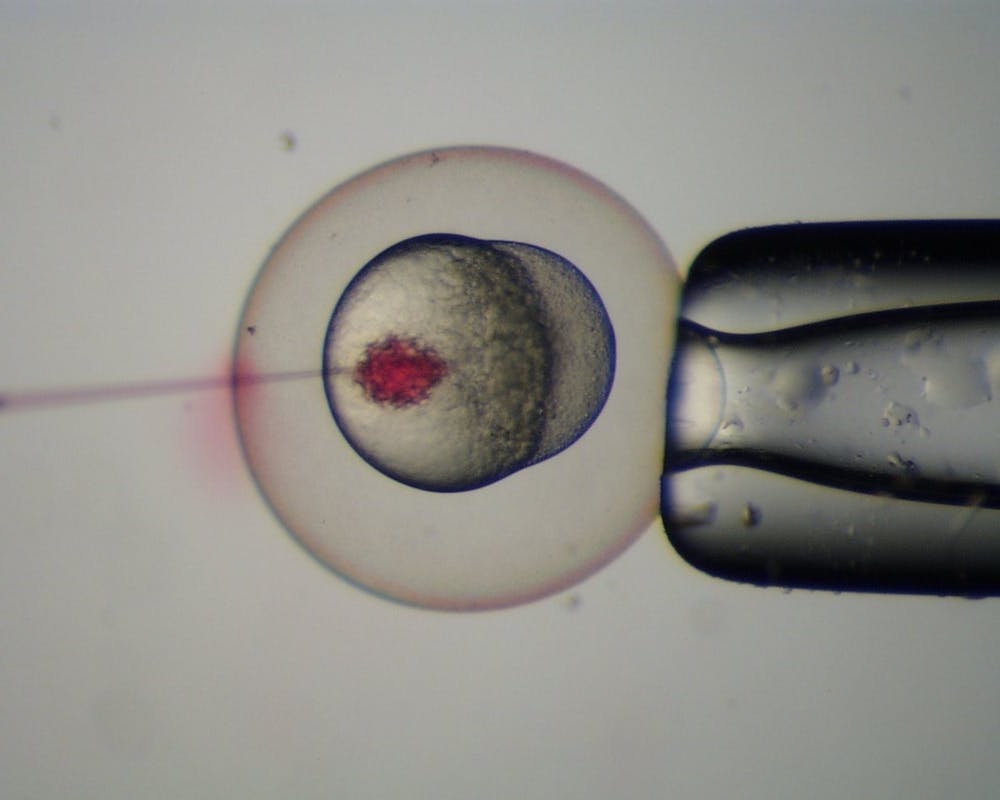Zebrafish
The zebrafish (Danio rerio) is the premier non-mammalian vertebrate model organism. During the last few decades, a unique set of properties has made the zebrafish a popular vertebrate model in various field of biology, ranging from developmental biology, human disease studies to environmental toxicology. The zebrafish is an outstanding system for studying processes difficult or impossible to follow in other animals such as the mechanisms underlying organogenesis. Unlike mice, this model system is readily amenable to forward genetic mutagenesis approaches for the identification of new genes required for these key developmental processes and functions. In the areas of vertebrate development biology and functional genomics, the transparency of the zebrafish embryo during development has allowed researchers to track regulation of gene expression using fluorescent protein genes in real time in living animals. Consequently, the conversion of genetic and other biological information learned from the fish to humans has been faster than in other vertebrate systems.
The Zebrafish facility in Biogem is equipped with breeding systems and also with experimental toxicology systems. The breeding systems have a continuous water recirculation with temperature (° C), conductivity (μS) and pH values constantly controlled in order to guarantee the best conditions of fish growth. The toxicology systems, unlike those of breeding, does not shows any continuous recycling of water. The values of temperature (° C), conductivity (μS) and water pH are constantly checked and it is possible to program water changes at specific time intervals in order to optimize the concentration of testing molecules and drugs.
The Zebrafish Service provides expertise for transgenic lines and mutants generation and support for design and realization of toxicology studies with the zebrafish model.
Our services include:
|
|
|---|---|
Animal housing and care |
|
|
Breeding and maintenance |
|
Embryo production for genetic knockdown, transgenic and chemical genetic testing |
|
Strain propagation, including genotype services |
|
|
Zebrafish embryo microinjection |
|
Zebrafish transgenesis by CRISPR/Cas9 technology |
|
Morpholino oligonucleotide-mediated antisense gene-specific knockdowns |
|
mRNA and cDNA-mediated gene misexpression |
|
Expression pattern analysis of genes of interest (RNA in situ hybridization) |
|
Important and rearing of mutant and transgenic lines |
|
Embryonic phenotyping |
|
Reproductive phenotyping |
|
Animals treatment for toxicology studies under long term conditions |
|
Zebrafish Samples collections |



